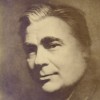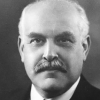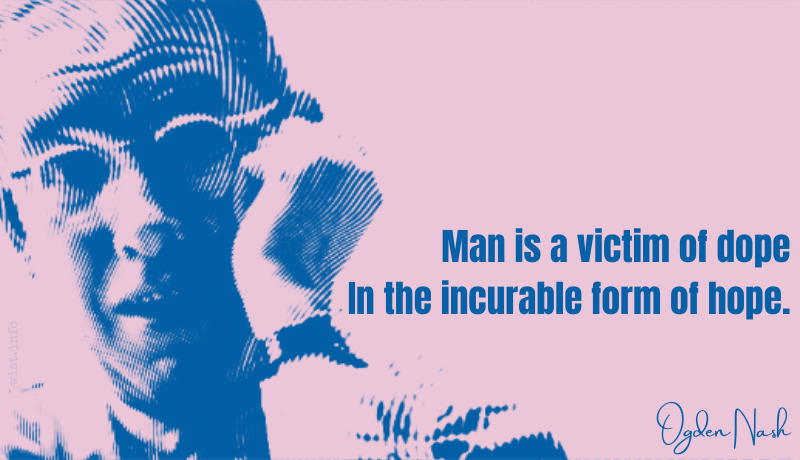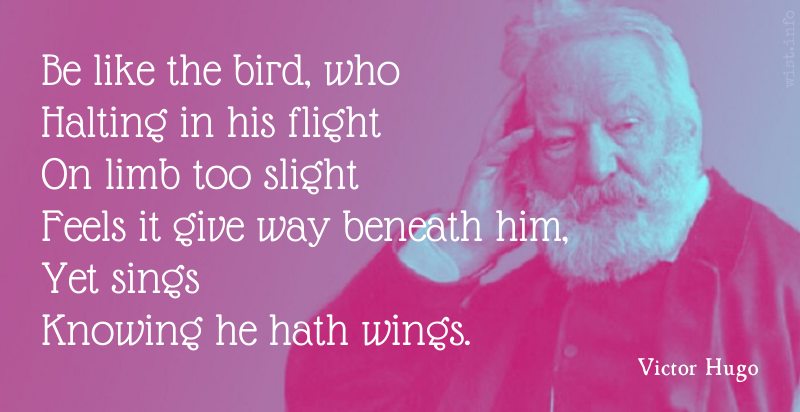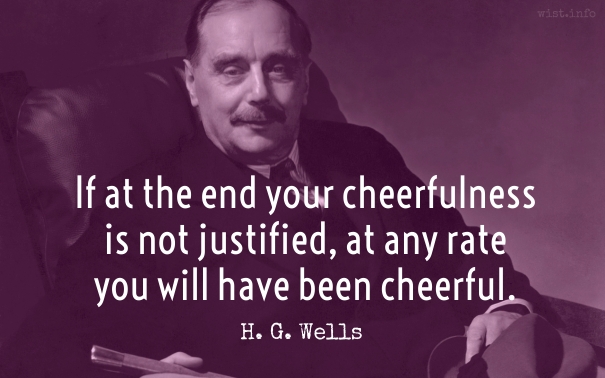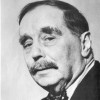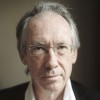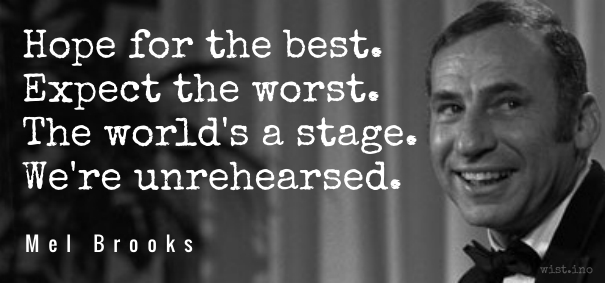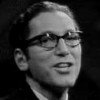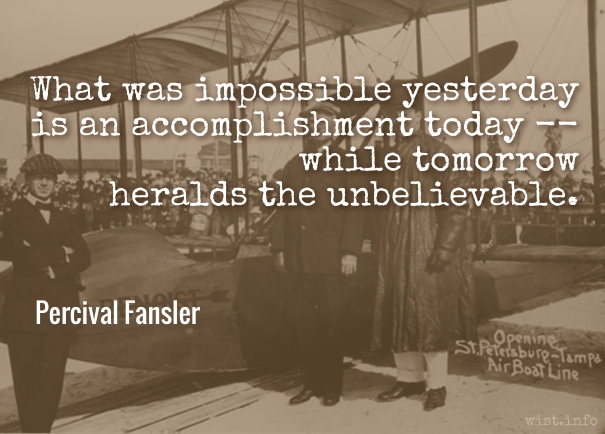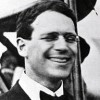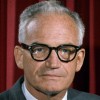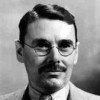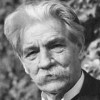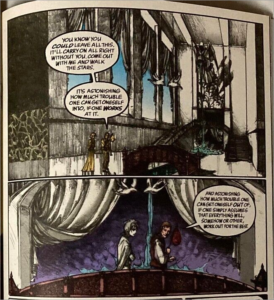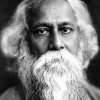Things look different when seen in a different light. So look at them in the light of happiness. Don’t confuse good and bad.
[Hace muy diferentes visos una misma cosa si se mira a diferentes luces: mírese por la de la felicidad. No se han de trocar los frenos al bien y al mal.]
Baltasar Gracián y Morales (1601-1658) Spanish Jesuit priest, writer, philosopher
The Art of Worldly Wisdom [Oráculo Manual y Arte de Prudencia], § 224 (1647) [tr. Maurer (1992)]
(Source)
(Source (Spanish)). Alternate translations:
One and the same thing, hath its good day, and its bad. Examine it on the fairest side. We must not give the contrary reines to good and evil.
[Flesher ed. (1685)]
The same thing looks quite different in another light; look at it therefore on its best side and do not exchange good for evil.
[tr. Jacobs (1892)]
For one and the same thing has very different faces, as seen in different lights; look upon it in its happiest light, and do not get the controls mixed, as to what is good and what is bad.
[tr. Fischer (1937)]
Quotations about:
optimism
Note not all quotations have been tagged, so Search may find additional quotes on this topic.
Do not get lost in a sea of despair. You must not become bitter or hostile; be hopeful and optimistic. Our struggle is not the struggle of a day, a week, a month, or a year. It is the struggle of a lifetime. Never, ever be afraid to make some noise and get in good trouble, necessary trouble. We will find a way to make a way out of no way.
John Lewis (1940-2020) American politician and civil rights leader
Stump speech
Lewis used variations of these phrases regularly through his career. Several abridged combinations showed up in social media:
Ours is not the struggle of a day, a week, a month, or a year--it is the struggle of lifetime. We must build a world at peace with itself.
[Twitter (14 Jul 2016)]
Do not get lost in a sea of despair. Be hopeful, be optimistic. Our struggle is not the struggle of a day, a week, a month, or a year, it is the struggle of a lifetime. Never, ever be afraid to make some noise and get in good trouble, necessary trouble.
[Twitter (27 Jun 2018)]
Do not get lost in a sea of despair. Do not become bitter or hostile. Be hopeful, be optimistic. Never, ever be afraid to make some noise and get in good trouble, necessary trouble. We will find a way to make a way out of no way.
[Twitter (16 Jul 2019)]
I have no idea what your generation will be like. In mine we were to enjoy “Peace in our time.” A very well meaning gentleman waved his umbrella and shouted those very words … less than a year before the whole world went to war. But this gentleman was suffering the worldly disease of insufferable optimism. He and his fellow humans kept polishing the rose colored glasses when actually they should have taken them off. They were sacrificing reason and reality for a brief and temporal peace of mind, the same peace of mind that many of my contemporaries derive by steadfastly refraining from remembering the War that came before. All this was in my time, youngster — I hope not in yours.
Rod Serling (1924-1975) American screenwriter, playwright, television producer, narrator
“First Squad, First Platoon,” Dedication (c. 1947)
(Source)
Dedication to his unborn children, in one of his first (unpublished) works of fiction, while at Antioch College under the GI Bill. In Anne Serling, As I Knew Him: My Dad, Rod Serling (2013).
Some of you young folks been saying to me, “Hey Pops, what you mean ‘What a wonderful world’? How about all them wars all over the place? You call them wonderful? And how about hunger and pollution? That ain’t so wonderful either.” Well how about listening to old Pops for a minute. Seems to me, it aint the world that’s so bad but what we’re doin’ to it. And all I’m saying is, see, what a wonderful world it would be if only we’d give it a chance. Love, baby, love. That’s the secret, yeah. If lots more of us loved each other, we’d solve lots more problems. And then this world would be a gasser. That’s wha’ ol’ Pops keeps saying.
Louis "Satchmo" Armstrong (1900-1971) American musician
Spoken introduction to “What a Wonderful World” (1970)
(Source)
but whotthehell archy whotthehell
jamais triste archy jamais triste
that is my motto.Don Marquis (1878-1937) American journalist and humorist
archy and mehitabel, “mehitabel sees paris” (1927)
(Source)
"Jamais triste" means "never sad" in French.
A pessimist looks at his glass and says it is half empty; an optimist looks at it and says it is half full.
Josiah Stamp (1880-1941) English industrialist, economist, statistician, banker
Comment (1935)
There is substantial evidence that Stamp used this now-cliched phrase, or variations of it, on multiple spoken occasions in 1935, the earliest references I could find.
- The Railway Service Journal (later Transport Salaried Staff Journal) mentions 1935 after-dinner remarks by Stamp: "After dinner, Sir Josiah Stamp defined an optimist as 'the man who looks at his glass and says it is half full,' and the pessimist as 'the man who looks at it and says it is half empty.'" [Source]
- Similarly, the Bristol Chamber of Commerce Journal mentions a 1935 speech: "A pessimist is a man who looks at the glass and describes it as half empty, and an optimist is a man who describes it as half full. It is all a question of the point of view." [Source]
- A New York Times article (12 Nov 1935) includes "I came recently upon a graphic distinction drawn by Sir Josiah Stamp between an optimist and a pessimist," followed by the phrasing noted at the top. [Source, Source]
an optimist is a guy
that has never had
much experienceDon Marquis (1878-1937) American journalist and humorist
archy and mehitabel, “certain maxims of archy” (1927)
(Source)
“Supposing a tree fell down, Pooh, when we were underneath it?”
“Supposing it didn’t,” said Pooh after careful thought.
Piglet was comforted by this.
A. A. Milne (1882-1956) English poet and playwright [Alan Alexander Milne]
The House at Pooh Corner, ch. 8 “In Which Piglet Does A Very Grand Thing” (1928)
(Source)
We should take comfort that while we may have more still to endure, better days will return: we will be with our friends again; we will be with our families again; we will meet again.
Elizabeth II (b. 1926) Queen of the United Kingdom and the Commonwealth realms
Address to the Nation (5 Apr 2020)
(Source)
On the COVID-19 Pandemic. The last line is an allusion to the famous WWII song.
People who have never really wielded power always have illusions about how much those who have power can really do.
Thomas Friedman (b. 1953) American journalist, columnist, author
From Beirut to Jerusalem, ch. 8 (1989)
(Source)
And however dark the skies may appear,
And however souls may blunder,
I tell you it all will work out clear,
For good lies over and under.Ella Wheeler Wilcox (1850-1919) American author and poet.
“Insight,” An Erring Woman’s Love (1892)
(Source)
When did the future switch from being a promise to being a threat?
Chuck Palahniuk (b. 1962) American novelist and freelance journalist
Invisible Monsters (1999)
(Source)
Man is a victim of dope
In the incurable form of hope.Ogden Nash (1902-1971) American poet
“Good-bye, Old Year, You Oaf, or Why Don’t They Pay the Bonus?” (1935)
(Source)
When the accumulation of wealth is no longer of high social importance, there will be great changes in the code of morals. We shall be able to rid ourselves of many of the pseudo-moral principles which have hag-ridden us for two hundred years, by which we have exalted some of the most distasteful of human qualities into the position of the highest virtues. We shall be able to afford to dare to assess the money-motive at its true value. The love of money as a possession — as distinguished from the love of money as a means to the enjoyment and realities of life — will be recognized for what it is, a somewhat disgusting morbidity, one of those semi-criminal, semi-pathological propensities which one hands over with a shudder to the specialists in mental disease.
John Maynard Keynes (1883-1946) English economist
“Economic Possibilities for our Grandchildren,” Nation and Athenaeum (1930-10-11)
(Source)
Originally a society talk in 1920, expanded to a lecture given in Madrid (1930-06). Reprinted in Essays in Persuasion, Part 5, ch. 2 (1931).
Things never turn out either so well or so badly as they logically ought to do.
William Ralph Inge (1860-1954) English prelate [Dean Inge]
“The Future of the English Race,” Galton Lecture (1919), Outspoken Essays: First Series (1920)
(Source)
Be like the bird, who
Halting in his flight
On limb too slight
Feels it give way beneath him,
Yet sings
Knowing he hath wings.[Soyez comme l’oiseau, posé pour un instant
Sur des rameaux trop frêles,
Qui sent ployer la branche et qui chante pourtant,
Sachant qu’il a des ailes!]Victor Hugo (1802-1885) French writer
“In the Church of *** [Dans l’eglise de ***],” Songs of Dusk [Les chants du crepuscule], #33 sec. 6 (1836)
(Source)
Full French poem. Alternative translations:
- Be like the bird that, on a bough too frail
To bear him, gaily sings!
He carols -- thought he slender branches fail:
He knows that he has wings. [Source]- Be like the bird that seeks its short repose
And dauntless sings
Upon that bending twig, because it knows
That it has wings. [Source]- Be like that bird, that halting in her flight
A while on boughs too slight;
Feels them give way beneath her,
And yet sings, yet sings,
Knowing that she hath wings.
[Laura Sedgwick Collins 1890s song, "Be Like That Bird"]- Thou art like the bird
That alights and sings
Though the frail spray bends --
For he knows he has wings.[tr. Kemble (Butler)]
DRUMLIN: I know you must think this is all very unfair. Maybe that’s an understatement. What you don’t know is I agree. I wish the world was a place where fair was the bottom line, where the kind of idealism you showed at the hearing was rewarded, not taken advantage of. Unfortunately, we don’t live in that world.
ARROWAY: Funny, I’ve always believed that the world is what we make of it.
Carl Sagan (1934-1996) American scientist and writer
Contact, novel (1997) [film screenplay by J. Hart and M. Goldenberg]
(Source)
While there is a chance of the world getting through its troubles I hold that a reasonable man has to behave as though he was sure of it. If at the end your cheerfulness is not justified, at any rate you will have been cheerful.
On a recent Sunday evening, Theo came up with an aphorism: the bigger you think, the crappier it looks. Asked to explain he said, “When we go on about the big things, the political situation, global warming, world poverty, it all looks really terrible, with nothing getting better, nothing to look forward to. But when I think small, closer in — you know, a girl I’ve just met, or this song we’re going to do with Chas, or snowboarding next month, then it looks great. So this is going to be my motto — think small.”
There is freedom waiting for you,
On the breezes of the sky,
And you ask “What if I fall?”
Oh but my darling,
What if you fly?
“Life is like a sewer — what you get out of it depends on what you put into it.” It’s always seemed to me that this is precisely the sort of dynamic, positive thinking that we so desperately need today in these trying times of crisis and universal brouhaha.
My faith in the future rests squarely on the belief that man, if he doesn’t first destroy himself, will find new answers in the universe, new technologies, new disciplines, which will contribute to a vastly different and better world in the twenty-first century. Recalling what has happened in my short lifetime in the fields of communication and transportation and the life sciences, I marvel at the pessimists who tell us that we have reached the end of our productive capacity, who project a future of primarily dividing up what we now have and making do with less. To my mind the single essential element on which all discoveries will be dependent is human freedom.
Optimism is the faith that leads to achievement; nothing can be done without hope.
If I should try to say anew the creed of the Optimist, I should say something like this: “I believe in God, I believe in Man, I believe in the power of the spirit, I believe we should so act that we may draw nearer and more near the age when no man shall live at his ease while another suffers.”
It is a mistake always to contemplate the good and ignore the evil, because by making people neglectful it lets in disaster. There is a dangerous optimism of ignorance and indifference.
We [Americans] cheerfully assume that in some mystic way love conquers all, that good outweighs evil in the just balances of the universe and that at the eleventh hour something gloriously triumphant will prevent the worst before it happens.
Brooks Atkinson (1894-1984) American drama critic and journalist
Once Around the Sun, “January 1” (1951)
(Source)
When you face the sun, the shadows always fall behind you.
To the question whether I am a pessimist or an optimist, I answer that my knowledge is pessimistic, but my willing and hoping are optimistic.
Albert Schweitzer (1875-1965) Alsatian philosopher, physician, philanthropist, polymath
Out of My Life and Thought, An Autobiography, Epilogue (1933) [tr. Campion]
See also Gramsci.
When the skie falth we shall have Larkes.
[When the sky falls, we shall have larks.]
John Heywood (1497?-1580?) English playwright and epigrammist
Proverbes, Part 1, ch. 4 (1546)
(Source)
In youth our judgments are obscured by our hopes; in age, by our regrets.
Paul Eldridge (1888-1982) American educator, novelist, poet
Maxims for a Modern Man, #144 (1965)
(Source)
DESTRUCTION: It’s astonishing how much trouble one can get oneself into, if one works at it. And astonishing how much trouble one can get oneself out of, if one simply assumes that everything will, somehow or other, work out for the best.
Neil Gaiman (b. 1960) British author, screenwriter, fabulist
Sandman, Book 10. The Wake, # 72 “Chapter 3, In Which We Wake” (1995-11)
(Source)
The reason I don’t worry about society is, nineteen people knocked down two buildings and killed thousands. Hundreds of people ran into those buildings to save them. I’ll take those odds every fucking day.
The writer is delegated to declare and to celebrate man’s proven capacity for greatness of heart and spirit — for gallantry in defeat — for courage, compassion and love. In the endless war against weakness and despair, these are the bright rally-flags of hope and of emulation. I hold that a writer who does not passionately believe in the perfectibility of man, has no dedication nor any membership in literature.
John Steinbeck (1902-1968) American writer
Speech, Nobel Prize Banquet, Stockholm (10 Dec 1962)
(Source)
An idealist is one who, on noticing that a rose smells better than a cabbage, concludes that it is also more nourishing.
H. L. Mencken (1880-1956) American writer and journalist [Henry Lewis Mencken]
A Little Book in C Major, ch. 2, § 3 (1916)
(Source)
Variants:
IDEALIST: one who, on noticing that a rose smells better than a cabbage, concludes that it will also make better soup.
A Book of Burlesques, "The Jazz Webster" (1924)
An idealist is one who, on noticing that a rose smells better than a cabbage, concludes that it will also make better soup.
Chrestomathy, ch. 30 "Sententiae" (1949)
Although the world is full of suffering, it is full also of the overcoming of it. My optimism, then, does not rest on the absence of evil, but on a glad belief in the preponderance of good and a willing effort always to cooperate with the good, that it may prevail. I try to increase the power God has given me to see the best in everything and every one, and make that Best a part of my life.
Every observation of history inspires a confidence that we shall not go far wrong; that things will mend.
Ralph Waldo Emerson (1803-1882) American essayist, lecturer, poet
“The Young American,” lecture, Mercantile Library Association, Boston (1844-02-07)
(Source)





